Waltzes From Vienna (1934)
Directed by: Alfred Hitchcock
Written by: Alma Reville, Ernst Marischka, Guy Bolton, Heinz Reicher
Starring: Edmund Gwenn, Esmond Knight, Fay Compton, Jessie Matthews
UK
AVAILABLE ON DVD
RUNNING TIME: 81 min
THE HITCHCOCK CAMEO: None
REVIEWED BY: Dr Lenera, Official HCF Critic
Johann Strauss Jr, or Schani as he calls himself, is a talented young musician living under the immense shadow of his father, Johann Strauss, who is a fearsome tyrant of a man, a musical legend with an ego as big as his reputation. Schani spends much of his time teaching his sweetheart Rasi to play the piano, and writing tunes which he dedicates to her. He is approached by the wealthy Countess Helga Von Stahl who wants him to compose a waltz to go with some lyrics she has written. Rasi is engulfed with jealousy as her beloved Schani starts to spend all of his time with the Countess, while Schani himself is racked with self-doubt about his ability to come up with a suitable tune. His father has made him feel somewhat inept as a musician and he is totally convinced that he he’s not up to the job……
“The lowest ebb of my career” said Hitchcock on many an occasion when describing this film, which is about….how Johann Strauss wrote, and got performed, his great waltz, the Blue Danube. Not a subject for a Hitchcock film one would think, and readers of this website, a website called Horror Cult Films, certainly have a right to wonder what a review of it is doing here, though I do have a tendency to ‘push the boundaries’ and just review what I watch. Well, the review is right here of a film that is generally described as a ‘musical comedy’, though it’s not really a musical in the sense that people don’t burst into song except for the odd occasion when required by the narrative, and it’s only partially a comedy. It’s a light romantic drama about a young artist struggling for recognition and his first big break. Is it good? Well, I’ve certainly seen worse films this year; unlike, for instance, a certain musical starring Hugh Jackman, it’s decently directed at the very least. It’s a soufflé of a film, an innocuous piece of entertainment that is certainly not unpleasant to watch, and just about manages to not be boring. The latter is something I certainly can’t say for Hitchcock’s Topaz.
I will get to that dire movie in the future, so let’s return to 1934, and Hitchcock’s career was not going too good at this time. His last two films had flopped, and relations between him and John Maxwell, the head of British International Pictures, were getting increasingly strained, Maxwell not letting him make a project he was most keen on, Bulldog Drummond’s Baby, an original story featuring the popular secret agent which had his child being kidnapped. Hitchcock decided to move, and after a few months under contract for Alexander Korda which resulted in nothing, he ended up at Gaumont-British. Producer Tom Arnold immediately put him to work on their latest vehicle for singing star Jessie Matthews. This was based on a popular stage musical called The Great Waltz by Heinz Reichart and Ernst Marishka. Hitchcock was just happy to be working and initially seemed pleased to be doing the film, certainly enjoying the advances in sound recording since his last effort, but he lost interest in the project and fell out with Matthews, whom he felt behaved too much like a star. This led him to restrict the number of close-ups of her and shoot more of her at a distance. The film was a low budget production but didn’t even make its money back. Though I don’t think the film is that bad, there is no doubt that this period in time was Hitchock’s “lowest ebb”.
Waltzes From Vienna opens with a close-up of a bugle as firemen race to put out a fire. We don’t actually see this fire, something which I don’t know was due to the budget or Hitchcock being inventive. Perhaps it was a combination of both. As the fire apparently rages in the local bakery, people are being evacuated and there is a great commotion in the town, Strauss and his girlfriend Rasi are playing the piano, deep in love and therefore oblivious to what is happening around them. Strauss is actually a bit of a fool, thinking that, when he first meets the Countess Helga van Stahl, her request to pull up a chair means that she just wants to move chairs, and not realising when she accidentally scratches his hand that she is literally getting her claws into him. Then again, the expected romantic triangle doesn’t really ‘happen’ until near the end. Rasi is jealous of the time her boyfriend spends with Helga, but it’s pretty much all about music….until near the end. Actually nobody seems to have much fun except the chief servant of Helga and her husband respectively, who are obviously carrying out an affair under their very noses. Helga warns her hubby not to come into her room because she’s changing, while Rasi’s father tells Strauss that he and his wife never even kissed until six months after they were married.
Because Helga’s intentions seem mostly benevolent for much of the time, in that she seems to just want to further Strauss’s career, the real drama, such as it is, is Strauss’s conflict with his composer father, who publicly scorns his son’s compositions but actually realises he will in time be outshone by his son and desperately wants to put this off. Johann Strauss Snr, played by Edmund Gwenn with some of the detailed darkness of his performance in The Skin Game, really isn’t portrayed in a very good light, and his final acceptance of things is very unconvincing. Of course primarily this is about the writing of the Blue Danube, and some of this is nicely done. Strauss remembers the first musical phrase and we hear it played in the distance [a good effect here], then comes up with most of the rest of the piece by observing the operation of a bakery. It all climaxes with a performance of the piece, where Strauss has to take the place of his father, who, it has been arranged, is ‘detained’ somewhere else. It is a nice piece of music, and when the audience is gradually lured into action, first by swaying, than a couple starting to dance and others following, damn it, I was rather ‘into’ the film!
The direction is smooth, but lacking in the Hitchcock touch except in a few bits here and there. There’s a great shot indicating a servant’s humbling where see the Count’s feet at the top of the stairs and the top of the servant’s head at the bottom. Lots of long-distance shots emphasise the almost Spartan sets, which often lack in much detail and have an almost expressionistic feel and look, and lots and lots of white. Hitchcock clearly isn’t invested much in the story, but he still makes sure the film is nice to look at, and, while it really is a bit dull at times, he keeps the scenes short and to the point. There are a few minor laughs, like one guy who fights duels in his sleep. I guess it helps it you like Strauss’s waltzes to enjoy this film, as they’re constantly heard, often as an underscore. As a child I used to be quite ‘good’ on the piano and remember playing piano versions of the Strauss waltzes, and, having not heard them much in the interim, watching this film took me back to those days. They are usually decent tunes, at the least, something that we have a severe shortage of at the moment though, considering that they were often sung, the film almost totally wastes Jessie Matthews. She was a singing star, yet in this film only warbles briefly and a couple of times.
She has an appealing innocent air, does Matthews, and is certainly pretty. Esmond Knight is a pretty uncharismatic ‘hero’. I wouldn’t really recommend Waltzes From Vienna if you want to get into Hitchcock, but, having now seen the thing [it’s not even available in the UK, at the time of writing the only Hitchcock feature film that isn’t], I will say that it should pass the time amiably if you do decide to see it. I can’t quite see, though, how The Great Waltz was adapted a further four times, twice for the screen under that title in 1938 and 1972, and twice for TV entitled The Waltz King in 1963 and The Strauss Family TV series in 1973.

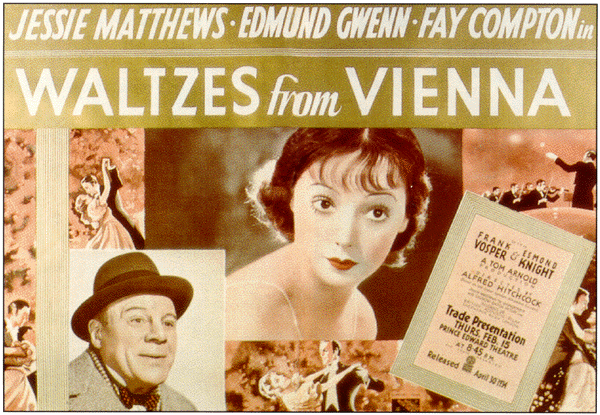
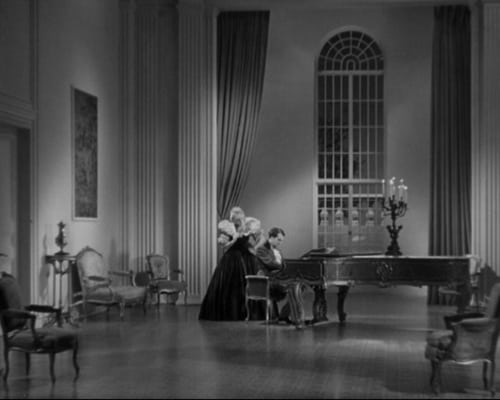





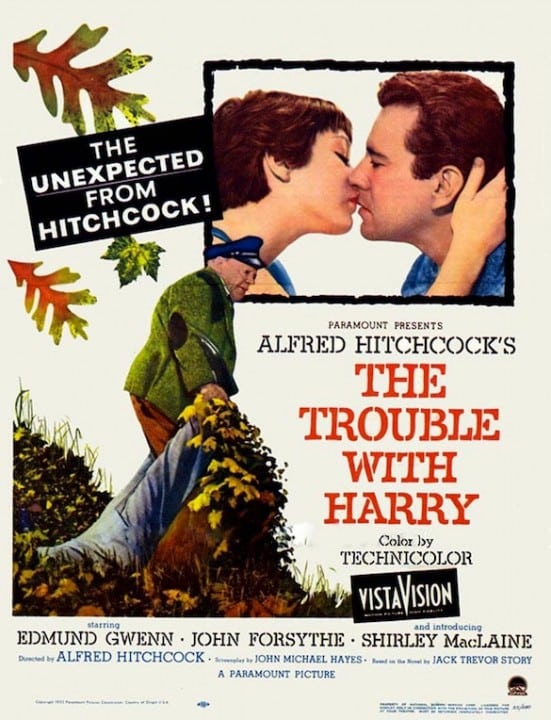
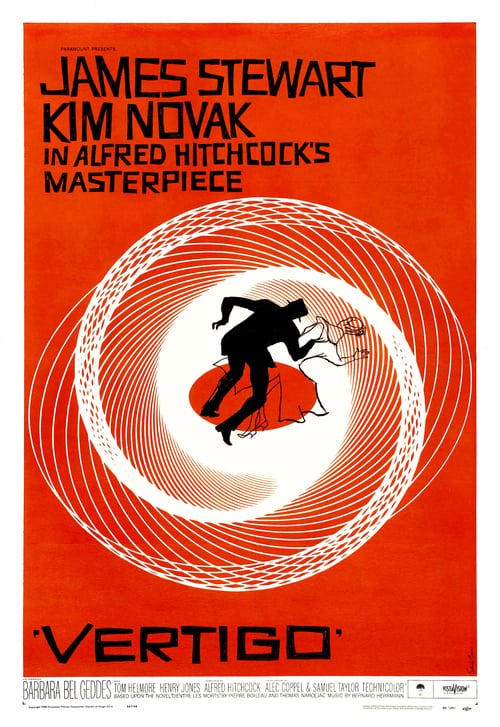
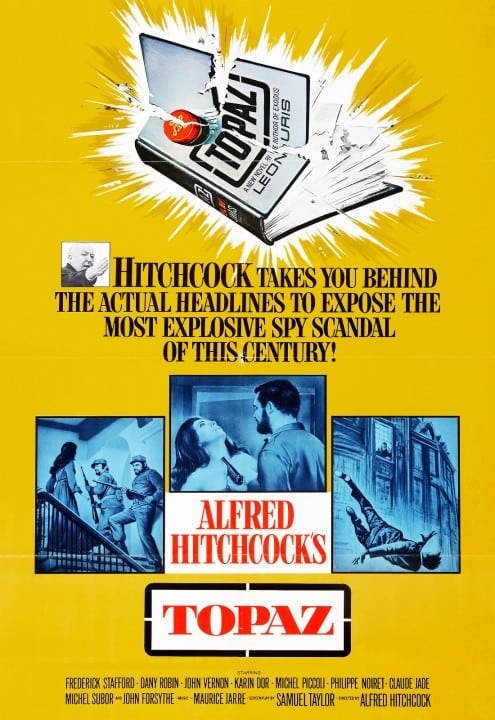
Be the first to comment